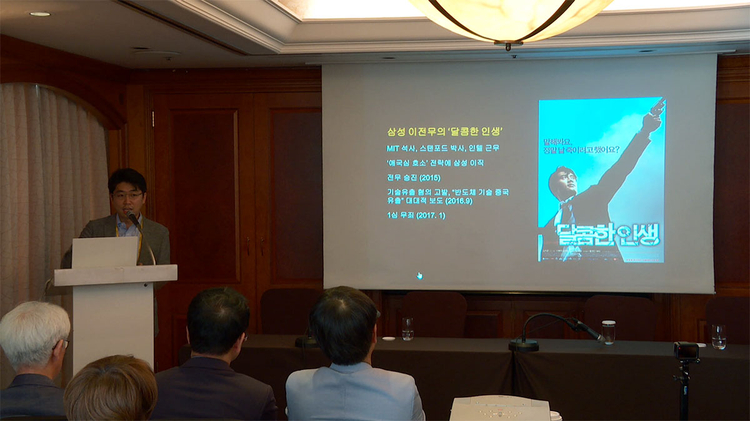
Where Should Korean Investigative Journalism Head to?
2018년 10월 08일 17시 13분
[This article was written by student reporters of IJAsia18.]
When the state obscuring human rights abuses its own people, what can journalists do to make sure these atrocities come to light?
Find out how Rappler Investigative Reporter Patricia Evangelista and Reuters Special Correspondent Clare Baldwin exposed extrajudicial killings in the Philippine President Duterte’s War on Drugs.
Evangelista has won a Human Rights Press Award and a SOPA award, while Baldwin has won a Pulitzer Prize, Rana Ayyub a Global Shining Light award for their extraordinary work reporting on the War of Drugs in the Philippines.
Bruce Shapiro, the session’s moderator and Executive Director of the Dart Center for Journalism and Trauma, emphasized that investigative journalism plays a particularly crucial role in countries such as the Philippines, where due process is limited and human rights abuses are rampant.
“Extrajudicial killing is the ultimate abuse of rights and power,” he said. “As investigative journalists, we are at the forefront of monitoring and identifying lines of accountability and reporting for those too powerless to voice their own oppression.”
Shapiro explained that reporting on such state-directed violence challenges traditional methodologies of journalism because the state will attempt to “obscure the lines of accountability to enforce their terror”, making a difficult job of uncovering abuse all the more challenging.
Baldwin described her experiences in the Philippines that “police often operate in a vacuum of impunity, as a result official police reports are written by men who freely admit to the killings.”
Evangelista gave the audience some shocking statistics and even more shocking statements from President Duterte: “32 killings a day, and Duterte says that all those deaths are beautiful.”
Here is a video Evangelista showed the audience, capturing the human suffering and injustice at the height of the war:
Given these immense challenges imposed by the state, the lack of reliable public paper trails, a potentially fatal environment which restricts testimonies from witnesses and even dangers to the journalists and their sources, how did Evangelista and Baldwin conduct their work?
Responding to Shapiro’s point that traditional reporting methods don’t work when the state does not want journalism, Baldwin shared her take that journalists today have to combine street reporting, narrative stories and data journalism, adding that her best stories had elements of data and narrative storytelling.
“Powerful things can emerge when we combine types of reporting,” she said.
Baldwin introduced her story titled Dead on Arrival, which exposed how the Filipino police were using public hospitals to cover up their extrajudicial killings. To investigate the lead, she scraped and transcribed handwritten police reports, compiled the locational and circumstantial data, looked at hours of surveillance camera footage and contrasted eye-witness accounts against police reports. The work helped unveil that the police were already sending dead victims to hospitals to declare them “dead on arrival” instead of “dead on scene” to conceal the number of victims.
Evangelista said that she applies the same empathetic approach to cover different topics ranging from natural disasters to extrajudicial killings.
“I need to see it. When they drown, I need to know enough to understand what it’s like to drown with them,” she said.
She shared her experiences of following police officers and ambulances to scenes of extrajudicial shootings during the night time.
“On top of the highway there was a body, his face was covered in packing tape. A vigilante killing, his body was full of pick wounds. After 10 minutes, we heard screaming. It was his wife. She saw his feet and knew it was him. She forced herself through the yellow tape to hold his hand.”

Given that much of her information comes from sources, Evangelista stated the importance of not only protecting recently traumatised witnesses, but also the imperativeness of respecting their agency and humanity.
“You have to realize that as the journalist at the scene, you’re the least welcome person,” she said. “You are there at the worst moment of their life. How you approach them, will determine whether they’ll talk. They need to have the agency to say no. Our job is just to be there and bear witness. Step back. Walk away. When and if they’re ever ready, ask for facts because they are the easiest to answer. Every time it’s difficult for them, step back again.”
As for finding information and verifying facts without any viable paper trail, Evangelista stressed that reporters must do their utmost best to verify every little fact.
“Only testimony and witness. Layer testimony on testimony. Layers upon layers. Back it up. Be paranoid as hell and bulletproof your story,” she said.
Both Evangelista and Baldwin spoke on how journalists depend on their partners and colleagues on the ground for safety, resource and idea sharing and emotional well-being.
Evangelista thanked her foreign correspondent colleagues such as Baldwin for being willing to share resources such as images and documents and providing support.
Shapiro cited the Troubles in Northern Ireland and Latin America in the 80s as examples, in addition to the current situation in the Philippines, of where journalists banded together in solidarity.
“Cooperation and collegiality, instead of cutthroat competition, often become the rules in places of civil upheaval,” he said. “The upholding of journalistic standards and speaking truth to power allow journalists to come together as an united front.”
report: Jasen Lo
뉴스타파는 권력과 자본의 간섭을 받지 않고 진실만을 보도하기 위해, 광고나 협찬 없이 오직 후원회원들의 회비로만 제작됩니다. 월 1만원 후원으로 더 나은 세상을 만들어주세요.